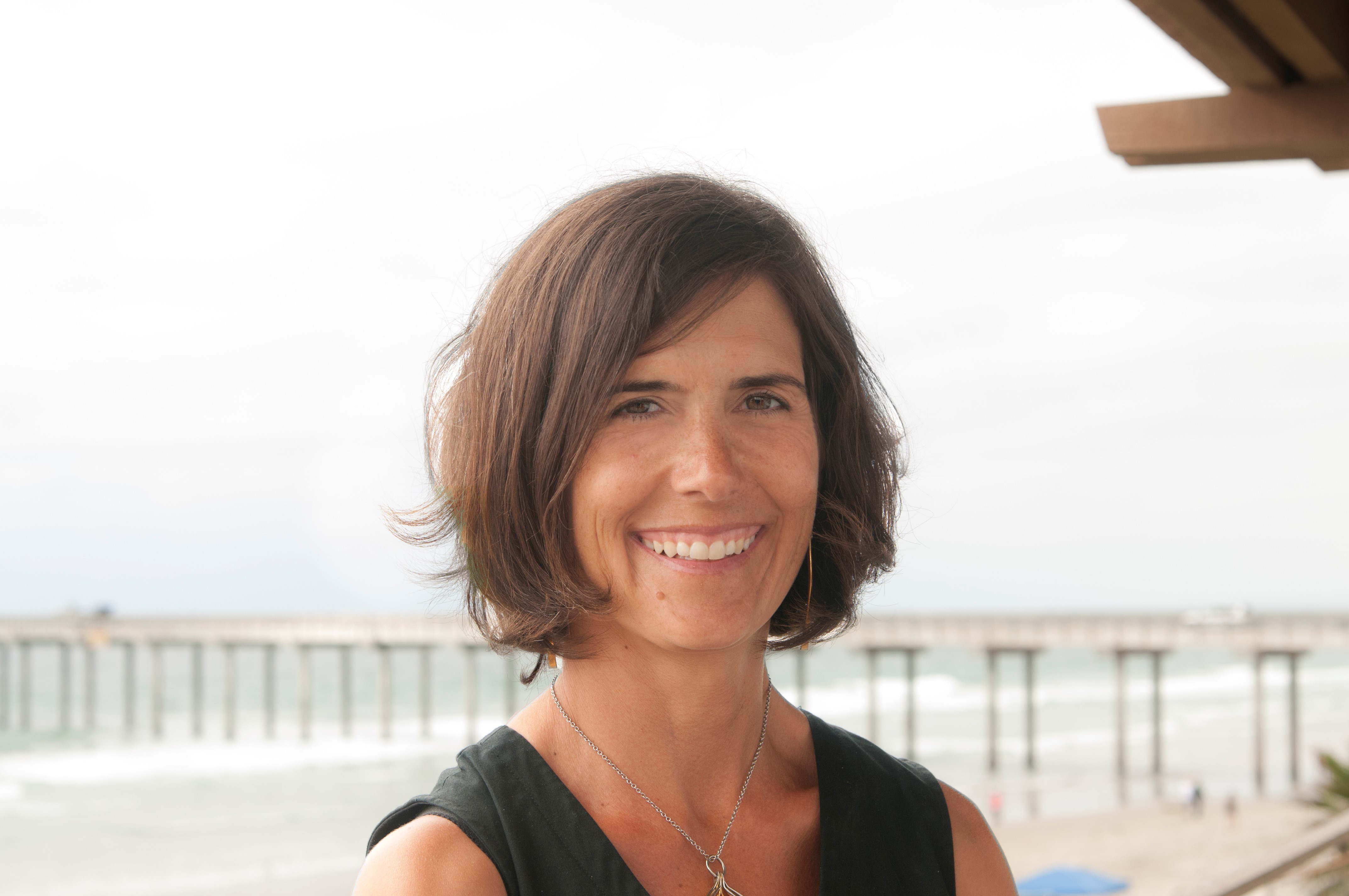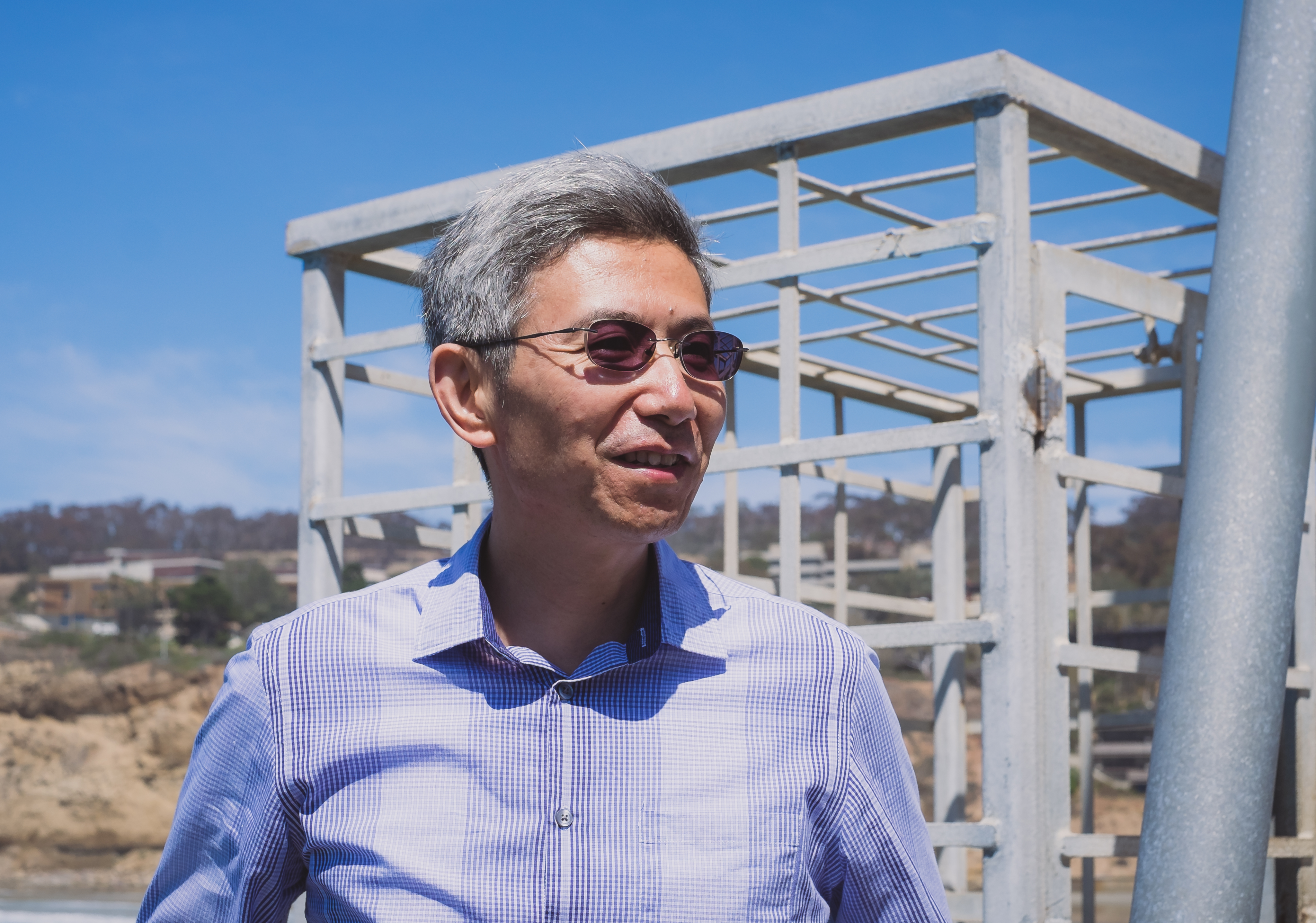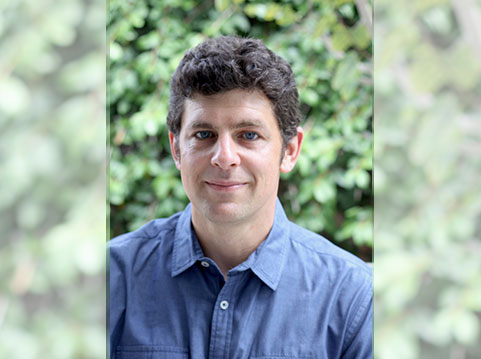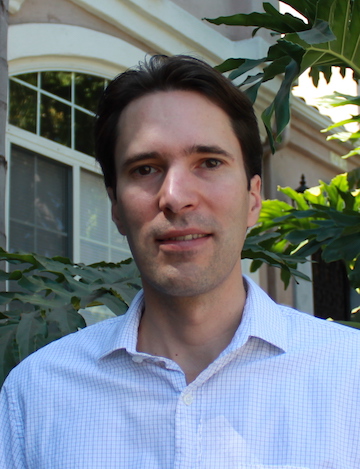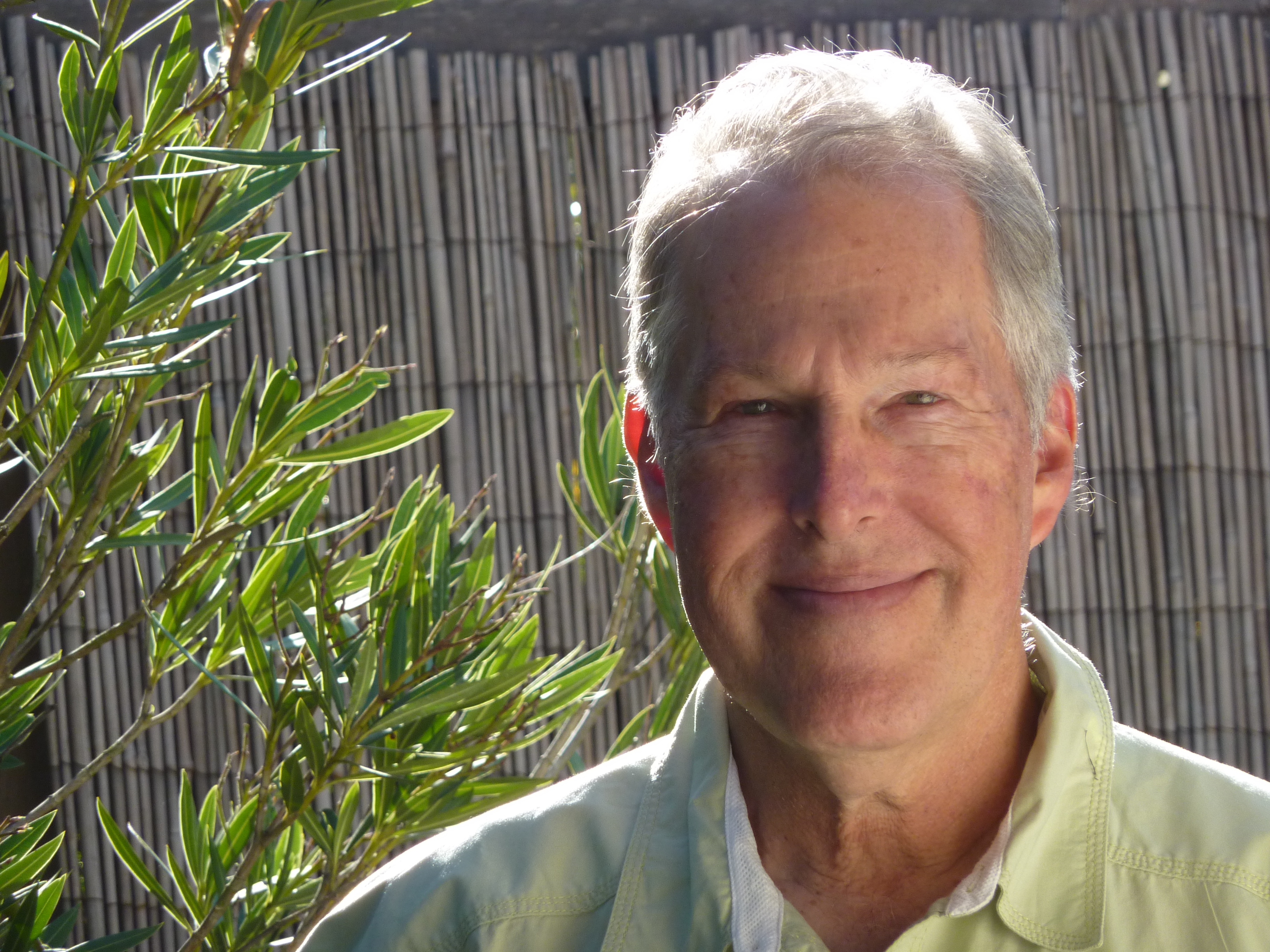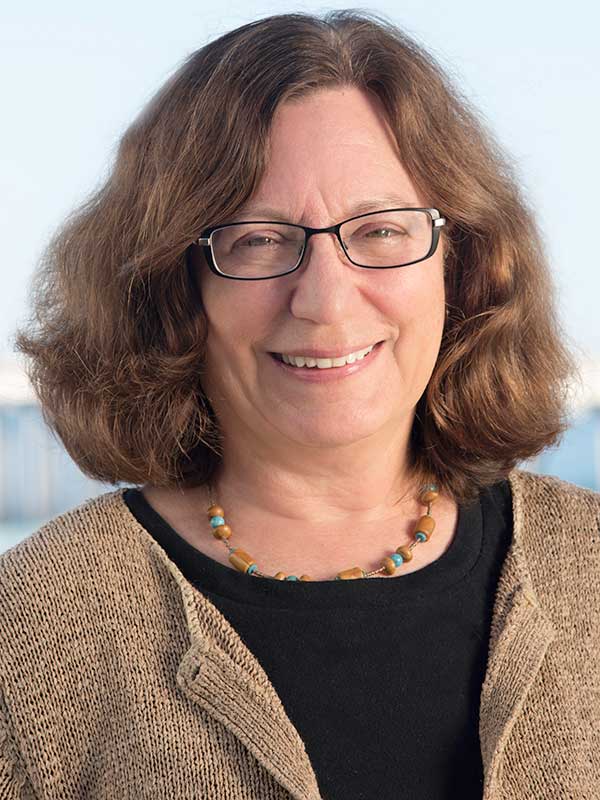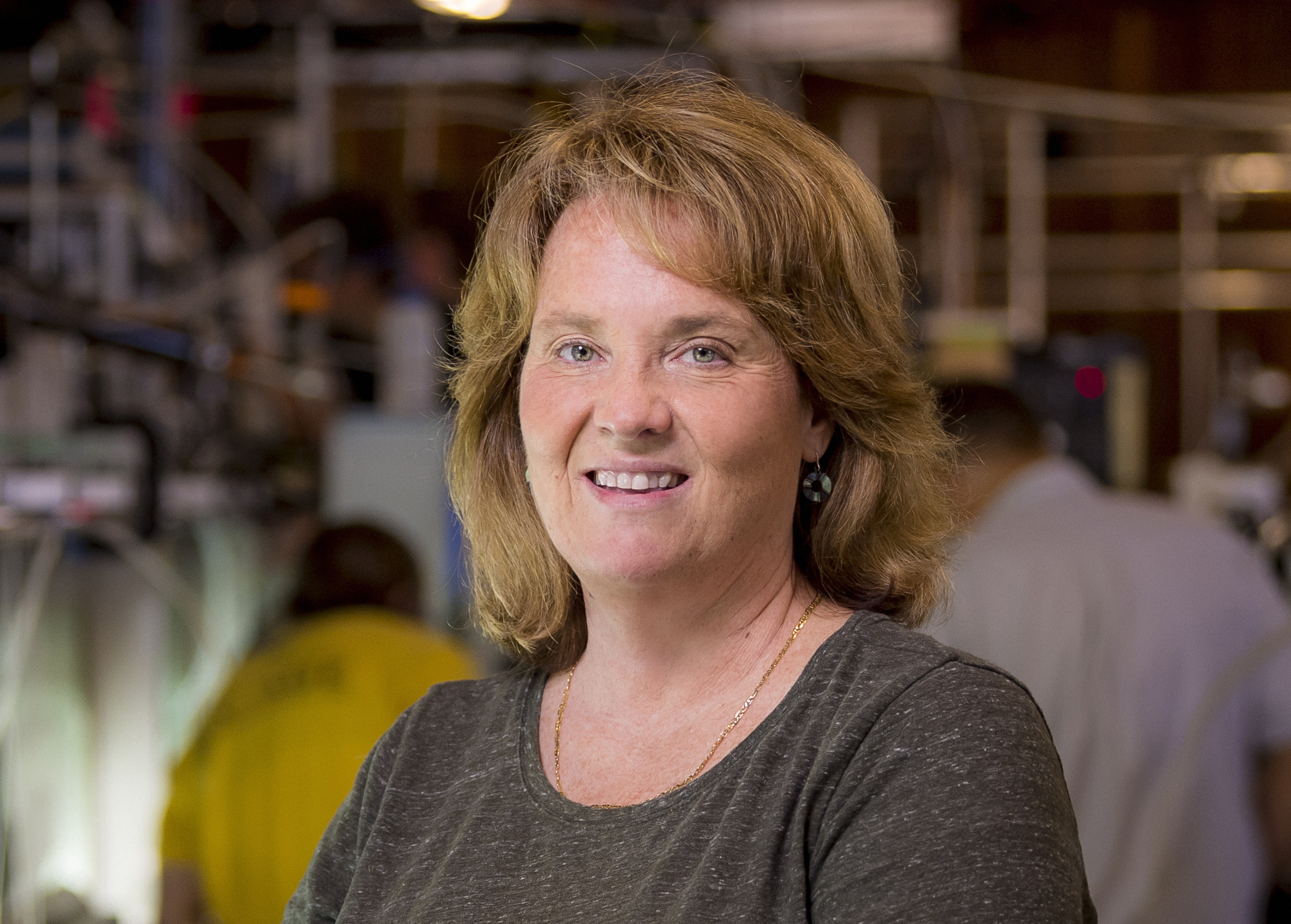
Supporting Faculty
Email: tbenmarhnia@ucsd.edu
Website: Benmarnhia Lab
Tarik Benmarhnia, Ph.D.
Assistant Professor
Family Medicine and Public Health
Climate, Atmospheric Science & Physical Oceanography
Tarik Benmarhnia is an associate professor in epidemiology with a joint appointment at the University of California San Diego's Scripps Institution of Oceanography and the Herbert Wertheim School of Public Health. His work is combining epidemiological methods with environmental and econometric models with a specific focus on health policies and environmental justice. He currently conducts various projects in California and globally about the impacts of extreme weather events such as wildfires, heat waves and precipitation anomalies, and evaluates the effectiveness of population health and equity.
Email: vramanathan@ucsd.edu
Website: Ramanathan Lab
Veerabhadran Ramanathan, Ph.D.
Distinguished Professor
Applied Ocean Sciences & Atmospheric Sciences
Dr. Ramanathan discovered the greenhouse effect of CFCs (cholorofluorocarbons; belongs to family of halocarbons) in 1975 and showed that a ton each of CFC-11 and CFC-12 has more global warming effect than 10,000 tons of CO2. This discovery established the now accepted fact that non-CO2 gases are a major contributor to planet warming and also enabled the Montreal protocol to become the first successful climate mitigation policy. He led a NASA study with its climate satellite to show that clouds had a net cooling effect on the planet and quantified the radiation interactions with water vapor and its amplification of the CO2 warming. He led international field campaigns, developed unmanned aircraft platforms for tracking brown cloud pollution worldwide. His work has led to numerous policies including the formation of the Climate and Clean Air Coalition by the United Nations. He was honored as the science advisor to Pope Francis' holy see delegation to the historic 2015 Paris Climate Summit and was named the UN Climate Champion in 2013. He has been elected to the US National Academy and the Royal Swedish Academy which awards the Nobel prizes, Foreign Policy named him a thought leader in 2014, and in 2018 he was named the Tang Laureat for sustainability science.
Shang-Ping Xie, Ph.D.
Professor
Climate, Atmospheric Science & Physical Oceanography
Shang-Ping Xie's research centers on ocean-atmosphere interactions and their role in climate formation, variability, and change. The ocean's importance for climate is evident from the facts that most of solar radiation absorption occurs at the Earth's surface and that the ocean occupies seventy percent of the Earth's surface. His research contributes to answering such fundamental questions as what determines the spatial distributions of climate, why it varies in time, how preferred patterns of climate variability form, and how predictable climate is.
He carries out both diagnostic and modeling studies, using observations and numerical models of the ocean, atmosphere, and their coupled system. Geographically, his work covers all three major oceans of the Pacific, Atlantic, and Indian, and monsoons of Asia, Africa, and the Americas. His research has led to the formulation of wind-evaporation-sea surface temperature (WES) feedback mechanism and the Indian Ocean capacitor effect, the "warmer-get-wetter" idea for rainfall change in global warming, and the discovery of what Science magazine called the longest island wake of the world.
Email: rkeeling@ucsd.edu
Website: rkeeling.scrippsprofiles.ucsd.edu
Ralph Keeling, Ph.D.
Professor
Geochemistry
Ralph Keeling is a Professor of Geochemistry in the Geosciences Research Division of Scripps Institution of Oceanography, UC San Diego. His research focuses on atmospheric composition, the carbon cycle, and climate change. He is considered a leading investigator of the global oxygen cycle for his precise measurements and analysis techniques. Keeling developed his method for measuring atmospheric oxygen levels utilizing interferometry techniques in the laboratory. He began pioneering measurements of changes in atmospheric oxygen levels from air samples collected at stations around the world. The measurements continue at nine sampling stations, extending from Ellesmere Island in northern Canada over the equator to two Antarctic stations. He also continues the CO2 measurement program initiated by his father Charles D. Keeling.
Email: pjfranks@ucsd.edu
Website: https://pjfranks.scrippsprofiles.ucsd.edu/blog/
Peter Franks, Ph.D.
Professor
Biological Oceanography
Peter Franks is a professor of biological oceanography in the Integrative Oceanography Division at Scripps Institution of Oceanography, University of California, San Diego. His research interests include red tides, phytoplankton ecology, and computer modeling of the interaction of physical and biological processes in the ocean. Franks studies recurrent red tides, particularly in the Gulf of Maine. Blooms of a toxic phytoplankton have been appearing each year in the region, forcing the closure of shellfish beds along the coasts of southern Maine, New Hampshire, and Massachusetts. After conducting extensive field studies and analyzing historical data, Franks determined that the toxic cells were transported along the coast in a freshwater plume originating from the Androscoggin and Kennebec rivers. He has developed computer models to understand the details of the transport mechanisms and to locate the source populations. His main interests lie in the study of physical/biological interactions in plankton. In one project, Franks studied how thin layers of phytoplankton form beneath the ocean surface. These microscopic patches of plant life are believed to provide a vital source of food for zooplankton, tiny animals that form a key link in the marine food chain.
Ian Eisenman, Ph.D.
Researcher and Professor
Climate, Atmospheric Science, and Physical Oceanography
Ian Eisenman is an associate professor of Climate, Atmospheric Sciences, and Physical Oceanography at Scripps Institution of Oceanography, UC San Diego. He received a bachelor's degree in Philosophy and Physics from Williams College, a masters degree in Physics from UC Santa Barbara, a masters degree in Applied Mathematics from Harvard University, and a PhD in Earth and Planetary Sciences from Harvard University, followed by a postdoctoral appointment jointly at Caltech and University of Washington. His research focuses on climate dynamics, including sea ice, paleoclimate, icebergs, and the large-scale circulations of the ocean and atmosphere. He uses a variety of models ranging from idealized mathematical representations of climate phenomena that can be addressed with pencil and paper to comprehensive climate models that are run on supercomputers, also drawing on observations. A general theme of much his research is the use of physical modeling and mathematical methods to address questions related to societally relevant problems.
Email: ajmiller@ucsd.edu
Website: http://meteora.ucsd.edu/~miller/
Art Miller, Ph.D.
Research Oceanographer and Senior Lecturer
Climate Sciences
Art Miller is a Distinguished Research Oceanographer (equivalent to Distinguished Full Professor) and a Senior Lecturer in Climate Sciences at Scripps Institution of Oceanography (UCSD). He is a physical oceanographer who studies oceanic influences on climate variability using a combination of computer simulation models and observational analysis. He also is increasingly involved in working with biologists to try to understand how physical oceanographic changes affect oceanic ecosystems. He is the author or co-author of more than 100 refereed publications and has had funding from NSF, NOAA, NASA, ONR, DOE, and the CA Dept of Boating and Waterways. He typically advises 2-8 Ph.D. students in his group. His research extends from basic issues in dynamical oceanography to a variety of topics in climate dynamics, atmospheric dynamics, coupled ocean-atmosphere interactions, ocean data assimilation, regional impacts of global climate change, and oceanic ecosystem response to physical forcing. His earlier papers involved the field of Pacific decadal variability. His recent interests include diagnosing climate regime changes in the physics and biology of the California Current, assessing the impact of climate changes on marine ecosystems in the North Pacific, and assessing the impact of mesoscale sea surface temperature anomalies on regional coupled ocean-atmosphere variability.
Jeremy Martin
Vice President
Energy and Sustainability
Jeremy M. Martin is Vice President, Energy & Sustainability at the Institute of the Americas, an inter-American public policy think-tank located at the University of California San Diego (UCSD). The Institute of the Americas Energy & Sustainability Program works to foster a deeper understanding of the most critical energy issues facing the Western Hemisphere. Jeremy spends his time delving into the geopolitics of energy and closely following energy industry trends and policy issues across the Americas, and is a frequent commentator and writer on Latin American and energy issues.
Jeremy has testified before the US Congress on energy issues in Latin America, teaches a graduate course in Latin American Energy Policy at UCSD and the University of San Diego (USD) and serves on the Board of Advisors for the Inter-American Dialogue’s Energy Advisor newsletter. He also serves on the Board of Directors of the San Diego Diplomacy Council and is a member of the host committee for the Crohn’s & Colitis Foundation San Diego Chapter annual Bet on Cures event. Jeremy graduated with honors in History from The Citadel in Charleston, SC and a Masters in International Affairs/International Development from the American University in Washington, DC.
David Victor, Ph.D.
Professor
School of Global Policy & Strategy
David Victor is a professor of international relations, co-director of the Laboratory on International Law and Regulation and Center for Global Transformation Endowed Chair in Innovation and Public Policy at the School of Global Policy and Strategy. Prior to joining the faculty at UC San Diego, Victor was a professor at Stanford Law School where he taught energy and environmental law. At UC San Diego, Victor and researchers at the Deep Decarbonization Initiative work at the intersection of science, technology and policy. They are focused on helping the world cut emissions of warming gases given the very real technology, economic and political constraints that exist. Victor's research interests surround energy policy - the future role of natural gas, electric power market reform and rural energy development - genetically modified plants and the related trade policy, climate change policy, and the role of technology, innovation and competition in development.
Victor is author of "Global Warming Gridlock", which explains why the world has not made much diplomatic progress on the problem of climate change while also exploring new strategies that would be more effective. Victor was a convening lead author for the Intergovernmental Panel on Climate Change in 2007 and in 2016, he was appointed to co-chair the Cross-Brookings Initiative on Energy and Climate. Additionally, he is a member of the World Economic Forum’s Global Future Council on Energy, where his work focuses on the role of natural gas as a transition fuel to deep decarbonization as well as a member of the Council on Foreign Relations.
Mark Jacobsen, Ph.D.
Associate Professor
Economics
Mark Jacobsen's research focuses on energy and environmental policy and addresses two main themes: the first is environmental regulation of transportation and the automobile industry, including the use of Corporate Average Fuel Economy (CAFE) standards and gasoline taxes. The second theme addresses optimal energy and environmental policy in the context of the broader economy, considering efficiency in the presence of Ricardian rents, untaxes activity in the informal sector, and green preferences.
Email: iriveracollazo@ucsd.edu
Website: Human Ecology Lab
Isabel Rivera-Collazo, Ph.D.
Assistant Professor
Anthropology
Isabel Rivera-Collazo is an Assistant Professor in Biological, Ecological and Human Adaptations to Climate Change at the Department of Anthropology and Scripps Institution of Oceanography. She received her Ph.D. from University College London in 2011. Dr. Rivera-Collazo is an environmental archaeologist specializing in geoarchaeology, archaeomalacology, coastal and marine processes, maritime culture and climate change, with regional interests in Puerto Rico, the Caribbean Basin and the Neotropics (Pan Caribbean region), Israel, and the eastern Mediterranean. Her research focuses on the effect that human activity has had over island ecosystems through time, as well as how people have responded to climatic and environmental change in the past. Dr. Rivera-Collazo's work focuses on resilience and adaptation, investigating what decisions enhance or reduce adaptive success. Taking an applied approach, Dr. Rivera-Collazo also works with local communities in the quest for understanding the current and expected impacts of climate change, including threats to coastal heritage.
Richard Somerville, Ph.D.
Professor Emeritus
Climate, Atmospheric Science & Physical Oceanography
Richard Somerville is an internationally recognized climate scientist and an expert on communicating clearly to the public what scientists have learned about climate change. His interests include all aspects of climate, including climate science outreach and the interface between science and public policy. Somerville has commented frequently on climate and environmental issues for the media. He has also testified before the United States Congress, briefed United Nations climate change negotiators, and advised government agencies on research, education and outreach.
He is an authority on the prospects for climate change in coming decades. His interests include climate science outreach, communication, and education. With Professor Samuel S. P. Shen of San Diego State University, Somerville is co-author of Climate Mathematics: Theory and Applications (Cambridge University Press, 2019). This textbook provides the mathematics, statistics, and programming needed for coursework and research in climate science, meteorology, and physical oceanography. Climate Mathematics presents selected concepts and techniques in linear algebra, statistics, calculus and differential equations. All are discussed with climate science examples.
Lynne Talley, Ph.D.
Distinguished Professor
Climate, Atmospheric Science & Physical Oceanography
Dr. Lynne Talley is a Distinguished Professor of Physical Oceanography in the Climate, Atmospheric Science, and Physical Oceanography division at Scripps Institution of Oceanography.
Talley's research focuses on the general circulation of the ocean and the role of various oceanic and atmospheric conditions that affect ocean currents and property distributions, and the role of the ocean in climate. Her work involves analysis of data from most of the world's oceans, depicting the movement of heat, salinity, and water masses, and the formation of water masses, particularly in subpolar regions. Her particular emphasis over the last decade has been Southern Ocean processes. Talley has spent many months on research ships collecting oceanographic data and is continuously active in international steering groups and oversight committees for collection and use of oceanographic data.
Kimberly Prather, Ph.D.
Distinguished Professor
Climate, Atmospheric Science & Physical Oceanography
Dr. Kim Prather is a Distinguished Professor and the Distinguished Chair in Atmospheric Chemistry at Scripps Institution of Oceanography and the Department of Chemistry and Biochemistry at UC San Diego. Prather's research focuses on understanding the impact of atmospheric aerosols on clouds, human health, and climate. Early in her career, she developed a technique known as aerosol time-of-flight mass spectrometry that is widely used in atmospheric field studies around the world to determine the origin and chemistry of aerosols. Her research involves making measurements of atmospheric aerosol chemistry and developing and using new analytical methods for these measurements. Aerosols occur in the environment in a variety of forms: clouds of ice or water droplets, salt particles from ocean spray, and smoke from a variety of combustion sources. They play an enormous role in our daily lives from affecting visibility and global climate change to endangering our health. Due to applications in research, medicine, and industry, there is great scientific interest in aerosols, however relative to their gas phase counterparts, limited information exists regarding their complex chemistry. Additionally, she has been heavily involved in promoting diversity and increasing participation by under-represented groups both within UC San Diego, as well as outside of the University.
Marty Ralph, Ph.D.
Researcher
Climate, Atmospheric Science & Physical Oceanography
Dr. Martin Ralph is a synoptic and mesoscale research meteorologist focused on understanding the physical processes that create extremes in precipitation renging from flood to drought, and on advancing associated observations, predictions, climate projections, and decisions support tools. A major goal through his career has been to better understand, monitor, and predict key elements of the global water cycle including water vapor transport, precipitation and runoff. Scientific understanding of atmospheric rivers, which are critical to both the global water cycle and to the distribution of precipitation and flooding in key parts of the world, is a major thrust. Using these results to evaluate and improve short-term precipitation forecasting and to provide reliable regional climate projections of flooding and water supplies in several areas of the world, are desired outcomes. The application of these findings to key users of weather and climate information on extreme events in the Western U.S. is being developed through new observing strategies, modeling, and the creation of decision support tools tailored to user needs.

